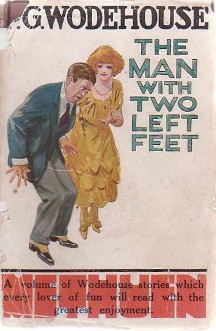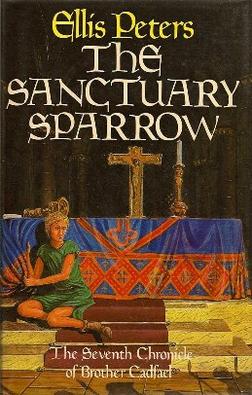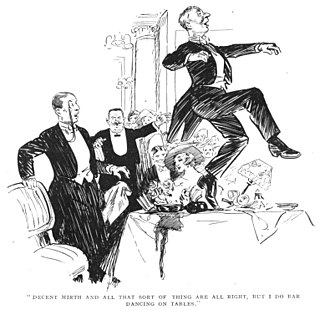Related Research Articles

Kurt Vonnegut was an American writer and humorist known for his satirical and darkly humorous novels. In a career spanning over 50 years, he published fourteen novels, three short-story collections, five plays, and five nonfiction works; further collections have been published after his death.

Cat's Cradle is a satirical postmodern novel, with science fiction elements, by American writer Kurt Vonnegut. Vonnegut's fourth novel, it was first published in 1963, exploring and satirizing issues of science, technology, the purpose of religion, and the arms race, often through the use of morbid humor.

Slaughterhouse-Five, or, The Children's Crusade: A Duty-Dance with Death is a 1969 semi-autobiographic science fiction-infused anti-war novel by Kurt Vonnegut. It follows the life and experiences of Billy Pilgrim, from his early years, to his time as an American soldier and chaplain's assistant during World War II, to the post-war years, with Billy occasionally traveling through time. The text centers on Billy's capture by the German Army and his survival of the Allied firebombing of Dresden as a prisoner of war, an experience which Vonnegut himself lived through as an American serviceman. The work has been called an example of "unmatched moral clarity" and "one of the most enduring anti-war novels of all time".
Between Time and Timbuktu is a television film directed by Fred Barzyk and based on a number of works by Kurt Vonnegut. Produced by National Educational Television and WGBH-TV in Boston, Massachusetts, it was telecast March 13, 1972 as a NET Playhouse special. The television script was also published in book form in 1972, illustrated with photographs by Jill Krementz and stills from the production.

Breakfast of Champions, or Goodbye Blue Monday is a 1973 novel by the American author Kurt Vonnegut. His seventh novel, it is set predominantly in the fictional town of Midland City, Ohio, and focuses on two characters: Dwayne Hoover, a Midland resident, Pontiac dealer and affluent figure in the city, and Kilgore Trout, a widely published but mostly unknown science fiction author. Breakfast of Champions deals with themes of free will, suicide, and race relations, among others. The novel is full of drawings by the author, substituting descriptive language with depictions requiring no translation.

The Sirens of Titan is a comic science fiction novel by Kurt Vonnegut Jr., first published in 1959. His second novel, it involves issues of free will, omniscience, and the overall purpose of human history. Much of the story revolves around a Martian invasion of Earth.

Player Piano is the first novel by American writer Kurt Vonnegut Jr., published in 1952. The novel depicts a dystopia of automation partly inspired by the author's time working at General Electric, describing the negative impact technology can have on quality of life. The story takes place in a near-future society that is almost totally mechanized, eliminating the need for human laborers. The widespread mechanization creates conflict between the wealthy upper class, the engineers and managers, who keep society running, and the lower class, whose skills and purpose in society have been replaced by machines. The book uses irony and sentimentality, which were to become hallmarks developed further in Vonnegut's later works.

Welcome to the Monkey House is a collection of 25 short stories written by Kurt Vonnegut, published by Delacorte in August 1968. The stories range from wartime epics to futuristic thrillers, given with satire and Vonnegut's unique edge. The stories are often intertwined and convey the same underlying messages on human nature and mid-twentieth century society.

Deadeye Dick is a novel by Kurt Vonnegut originally published in 1982.
Rabo Karabekian is a fictional character and the narrator and protagonist of the 1987 novel Bluebeard by American author Kurt Vonnegut.
"Who Am I This Time?" is a short story written by Kurt Vonnegut, published in the Saturday Evening Post in 1961. The story was collected in Vonnegut's famous anthology Welcome to the Monkey House. It was originally titled "My Name is Everyone".

The Heart of a Goof is a collection of nine short stories by English comic writer P. G. Wodehouse. It was first published in the United Kingdom on April 15, 1926, by Herbert Jenkins, and in the United States on March 4, 1927, by George H. Doran, New York, under the title Divots. The stories were originally published in magazines between 1921 and 1926.

The Man with Two Left Feet, and Other Stories is a collection of short stories by British author P. G. Wodehouse, first published in the UK on 8 March 1917 by Methuen & Co., London, and in the US on 1 February 1933 by A. L. Burt and Co., New York. All the stories had previously appeared in periodicals, usually The Strand Magazine in the United Kingdom and The Red Book Magazine or The Saturday Evening Post in the United States.
"Welcome to the Monkey House" is a Kurt Vonnegut short story that is part of the collection of the same name. It is alluded to in God Bless You, Mr. Rosewater as one of Kilgore Trout's stories.
The Fuller Brush Man is a 1948 American comedy film starring Red Skelton as a door-to-door salesman for the Fuller Brush Company who becomes a murder suspect.

Generation A is the thirteenth novel from Canadian novelist Douglas Coupland. It takes place in a near future, in a world in which bees have become extinct. The novel is told with a shifting-frame narrative perspective, shifting between the novel's five main protagonists. The novel mirrors the style of Coupland's first novel, Generation X: Tales for an Accelerated Culture, which is also a framed narrative. On September 30, 2009, Generation A was announced as a finalist for The Rogers Writers' Trust Fiction Prize by The Writer's Trust of Canada.

The Sanctuary Sparrow is a medieval mystery novel by Ellis Peters, set in spring 1140. Published in 1983, it is the seventh novel in The Cadfael Chronicles.
"First Blood" is a short story by F. Scott Fitzgerald, originally published in the April 5, 1930 issue of The Saturday Evening Post, illustrated by Harry Russell Ballinger. It was later included in his 1935 short story collection Taps at Reveille.

Complete Stories is a 2017 collection of most of Kurt Vonnegut's previously published short stories, and several that were previously unpublished. The collection is introduced with a foreword by Dave Eggers, and is edited by Jerome Klinkowitz and Dan Wakefield.

"Jeeves and the Unbidden Guest" is a short story by P. G. Wodehouse, and features the young gentleman Bertie Wooster and his valet Jeeves. The story was published in the Saturday Evening Post in the United States in December 1916, and in The Strand Magazine in the United Kingdom in March 1917. The story was also included in the 1925 collection Carry On, Jeeves.
References
- ↑ "Miss Temptation". The Saturday Evening Post. 2011-10-24. Retrieved 2022-11-02.
- ↑ Farrell, Susan Elizabeth (2008). Critical companion to Kurt Vonnegut : a literary reference to his life and work. New York: Facts On File. pp. 243–244. ISBN 978-1-4381-0023-4. OCLC 320899716.